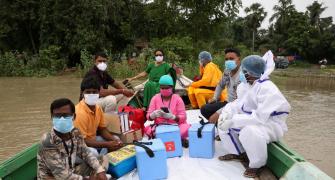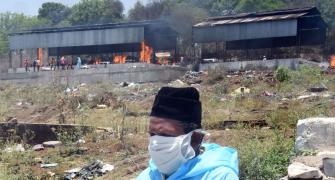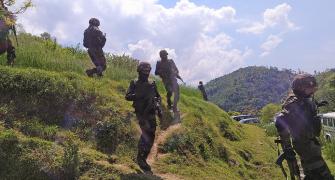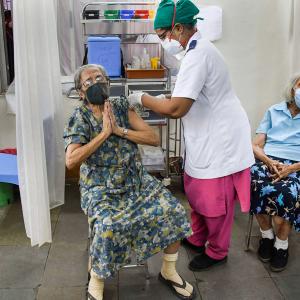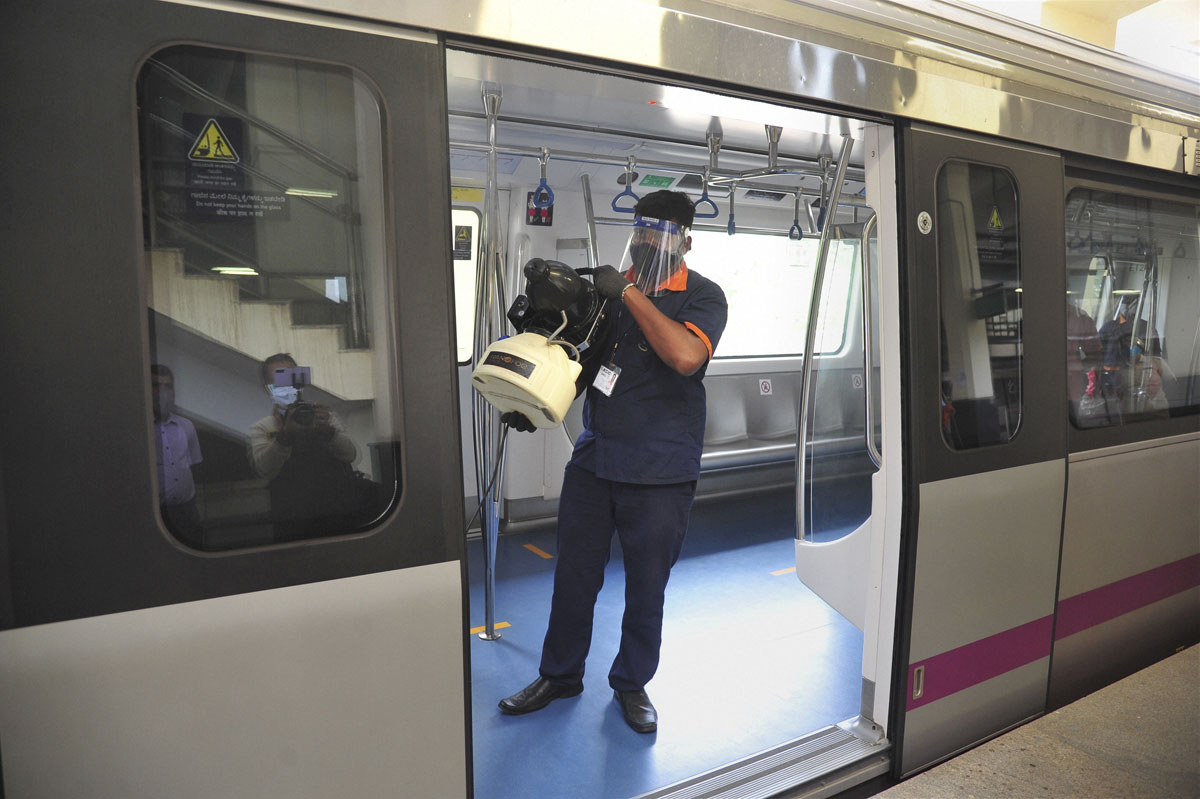The Centre has told states it is critical that the lifting of restrictions and providing relaxations are carefully calibrated with continued focus on containment efforts to curb the spread of the coronavirus infection.

In a letter to states and Union Territories on June 28, Union Health Secretary Rajesh Bhushan said that in order to bring uniformity, the need for following the existing framework for either imposition of restrictions or allowing relaxations based on the burden of disease and strain on healthcare infrastructure still remain important.
Bhushan shared a list of targeted actions that need to be implemented by the states which include monitoring of cases with districts as administrative units on a regular basis and taking necessary action for containment and health infrastructure upgradation.
He said case positivity calculated based on total positive cases vis-a-vis samples tested during the week is one of the prime indicators of the spread of infection in a district. Higher case positivity would imply the need for stringent containment and restrictions so as to control the spread of infection.
Similarly, he said each district needs to analyse bed occupancy vis-a-vis the available health infrastructure to ensure that it doesn't get overwhelmed and seamless patient admission and follow-up can be done. Higher bed occupancy is an indicator that the district needs to undertake specific measures to upgrade the available beds while focusing on containment activities equally vigorously.
It is important to emphasize that a lead time is required to upgrade health infrastructure (a month or more) and hence districts need to plan such upgrades after having duly analysed the case trajectory on a regular basis, he stated.
For prioritizing districts which need intensive follow-up, states and UTs may identify districts which require the highest level of restrictions while the remaining districts may be allowed higher degree of relaxations based on lower weekly case positivity or a relatively low bed occupancy rates.
District with high weekly case positivity or a high bed occupancy would need intensive monitoring, and thus the health ministry asked the states to consider appointing a senior officer from the state headquarter as the nodal officer for these districts.
The District Nodal Officer will work in coordination with District Collector /Municipal Commissioner to identify cluster of new cases and ensure implementation of required containment activities, the letter stated.
Restrictions once imposed will remain in force for a minimum period of 14 days while in the remaining areas of the district not under containment action, clearly relaxations/restrictions may be provided.
As a monitoring mechanism, the state government may consider monitoring the status of classification parameters on a weekly basis and ensure their wide publicity so as to inform community at large and obtain their support in management of COVID-19 while restrictions are imposed or relaxations are allowed.
While positivity rate and bed occupancy rate are vital criteria that need to be monitored for selection of high focus districts requiring intensive public health action, states and UTs shall also regularly monitor districts with higher numbers of active cases per million population as it is an important indicator to predict need for upgrading health infrastructure and logistics so as to manage the cases.
Stating that COVID-19 is an ongoing challenge, the healh secretary asked the states and UTs to continue working on five pillars of its management: "Test-Track-Treat-Vaccinate and adherence to COVID-Appropriate Behaviour."
Early identification of cases is important for curbing the spread, and for this adequate testing is crucial. RT-PCR machines and sufficient kits to ensure required level of testing should accordingly be maintained in all districts, the secretary said in the letter.
In addition to following clinical management protocol, the states should focus on upgradation of health infrastructure, timely commissioning of PSA oxygen plants in hospitals, adequate planning for availability of medical oxygen, availability of logistics, maintaining buffer stock of drugs and taking up necessary action for creation /redesigning of appropriate Covid-dedicated healthcare infrastructure, especially in peri-urban, rural, and tribal areas.
He also underlined the need for upskilling/reskilling of human resources on the latest clinical management protocol and stressed that an effective planning for vaccination focusing on prompt coverage of priority groups and hubs of economic activity should be prioritized.
"COVID-19 management can succeed only through a whole of government, whole of society approach," Bhushan said.
"Community engagement is critical and adherence to Covid-appropriate behavior is crucial to guard against any surge infection. This involves diligent use of masks/face covers, following physic distancing (2 gaj ki doori) and practising respiratory and hand hygiene," he said.
This normative advisory will aid the states and UTs to clearly define their policies and streamline their approaches for implementing graded restrictions/calibrated relaxation for management of COVID-19, he said.

